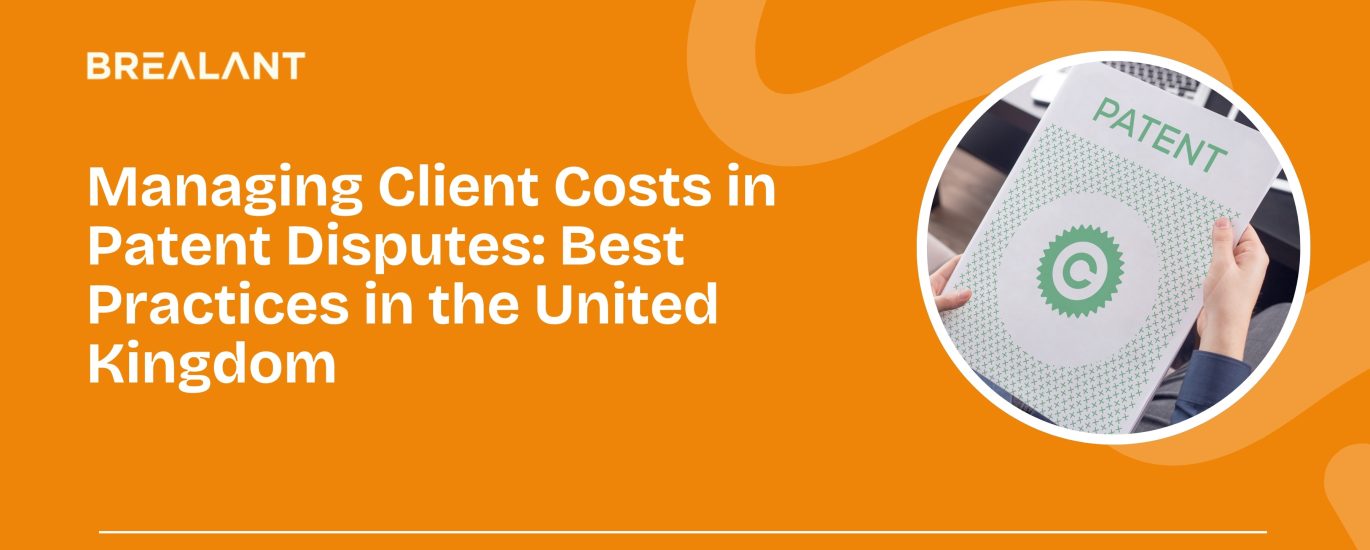



Patent disputes are mandatory when it comes to protecting your intellectual property rights. But does protecting your creation come with a cost? The answer is yes, as this includes complex and costly processes that consume time and resources. Businesses in the United Kingdom especially smaller firms have to go through these complex and expensive processes of patent dispute resolution and the costs. To face this challenge, one has to have a well-executed approach that can help protect the intellectual property assets without draining the finances. Here are some tips for managing expenses during patent dispute processes in the United Kingdom setting:
The process involves several stages, like pre-litigation negotiations, court trials, and legal appeals. Every stage has its costs and the costs rise with every high-stakes case. Cost factors include:∙
Legal Expenses: The time spent on case preparation, court hearings, and expert advice is included in the legal costs, which are frequently the most important component.
Court fees: The price of filing a case and other expenses related to using specialised courts, including the Patents Court or the UK Intellectual Property Enterprise Court (IPEC).
Witnesses with expertise: Expert testimony is frequently necessary to prove patent validity or infringement in complicated instances, which raises the expense significantly.
Document management and discovery: Obtaining and examining documentation is time- consuming, particularly in complex situations.
Knowing these costs enables businesses to plan for spending and helps lawyers advise clients on the smart use of resources.
The IPEC and the Patents Court are the two courts in the UK that hear most patent matters. The court of choice can impact the Litigation expenses.
Intellectual Property Enterprise Court (IPEC): IPEC is designed for Small and medium-sized businesses (SMEs) with limited resources. It helps to reduce financial risk by setting a cost ceiling for recoverable expenditures. IPEC is recommended for simple matters or when a
lesser claim amount is involved.
Patents Court: The High Court’s Patents Court is appropriate for more intricate, high-value disputes where a more thorough examination of legal and technical matters is necessary.
However, there are no recoverable expense ceilings and litigation is more expensive in this court. Larger businesses or cases with a major commercial effect use this location.
Effective budgeting is necessary to avoid cost overruns. By developing a thorough budget early on and revising it frequently, businesses can set reasonable expectations for their clients.
Initial Estimates: Lawyers should provide their clients with an estimate beforehand that considers every phase of the case. The estimate should include a contingency for unforeseen events.
Periodic Updates: As the case evolves, give frequent updates on the actual expenses compared to the initial budget. Clients can decide whether to proceed with a case or settle it with knowledge of transparency.
Budgets for Each Stage: By splitting the budget into phases (such as pre-litigation advice, filing, discovery, trial preparation, and trial), clients may better control their spending and anticipate when major expenses will occur.
ADR techniques, including arbitration or mediation, are less costly than full litigation. When both parties are willing to negotiate, alternative dispute resolution (ADR) may be quite successful in the United Kingdom regarding patent disputes.
Mediation: Through mediation, parties can engage in negotiations with the help of an impartial third party. It is a good choice for customers who want a settlement without official procedures because it is typically speedier and less expensive than a court case.
Arbitration: Usually less expensive than a full trial, arbitration is more costly than mediation. It can be advantageous when parties want to avoid a judicial battle’s public character but need a legally enforceable conclusion.
The unpredictability of traditional hourly pricing arrangements may make them less than suitable for patent disputes. Alternative fee arrangements (AFAs), which match expenses to results, can provide more assurance.
Fixed costs: Setting fixed costs at particular stages of the case can make budgeting more predictable.
Conditional Fee Agreements (CFAs): In CFAs, the amount of the fees relies on how the case turns out. Because customers pay reduced costs if the lawsuit is rejected, this agreement may help them save money.
Capped Fees: Capping the maximum fees payable, assures the clients that expenses won’t exceed the limit.
Though patent disputes in the United Kingdom might be expensive, they can be made more financially bearable using proactive cost control techniques. Legal professionals may offer clients efficient IP protection without breaking the bank by selecting the ideal location, carefully planning
their budget, investigating alternative dispute resolution (ADR), utilising technology, and customising fee arrangements.
At Brealant, we ensure that our customers are well-represented and acquainted with the updates of the IP domain. Regardless of the issue related to intellectual property rights, the experts at Brealant are ready to assist you.